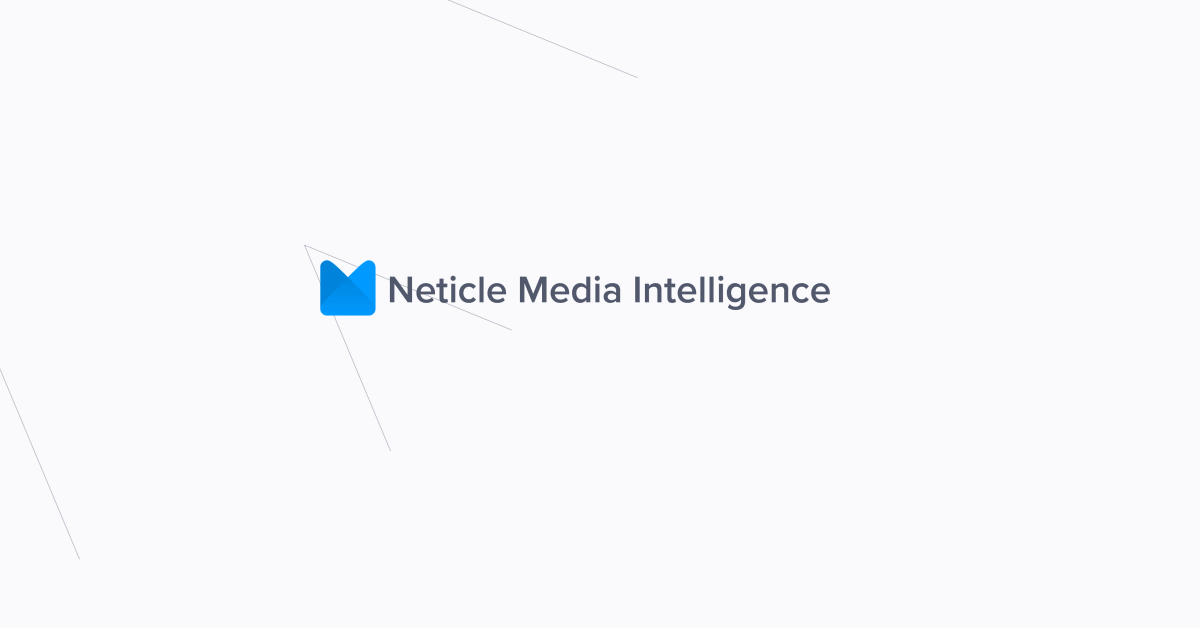The top online scandals in retail - don’t make these mistakes!
Everyone loves a good joke…except if it’s on them. For this blogpost, we’ve collected situations where sh∗t really hit the fan. Examples are taken from the online presence of Edeka, Lidl and Penny Markt. Social listening can prevent such scenes - read on to learn how.
Imagine you’re a marketing professional or PR manager, about to start your regular Thursday morning. Your coffee is on your desk, and you open the laptop. You check your emails and the social media pages you run, only to realize that there’s been a flood of negative comments and a few hundred shares. Plus, one of your colleagues has sent you an article that shames some element of the campaign you released a couple days ago. How great is the damage? You shudder to think how far the waves of bad reputation may have reached….
This is the kind of situation that we at Neticle want you to avoid, or, if it has already begun, we want you to be notified as soon as possible, so that you can interfere, instead of letting things escalate and being the last one to find out. Neticle Media Intelligence notifies you immediately if negative comments or articles appear, and shows you every bit of information to understand what has happened and how. Also, you can monitor trends and competitors, to make sure you don’t walk into any communication traps that could have been escaped.
Some brands weren’t so lucky… Let us show you a couple of examples through the public mentions we have collected, all concerning top retailers of the DACH region.
Food + politics = not the best idea
Edeka, the largest supermarket corporation in Germany, had more than 17 thousand mentions in two days, between the 19th and 20th of August this year. What happened there? A brand called True Fruits released six different flavors of smoothies with names of political parties and their main campaign elements printed on the bottles, to join the buzz around the upcoming elections. Edeka decided to send back the ones with AfD on them, stating that they had no room for the right wing party on their shelves (they announced this in a Facebook post that basically exploded with emojis, comments and shares). This reaction proved to be a big mistake: even though there were some customers and organizations in favor of refusing AfD this way (even True Fruits themselves acknowledged that they disliked AfD), most customers saw it as a completely wrong interpretation of true democracy, where there should be room for every opinion.
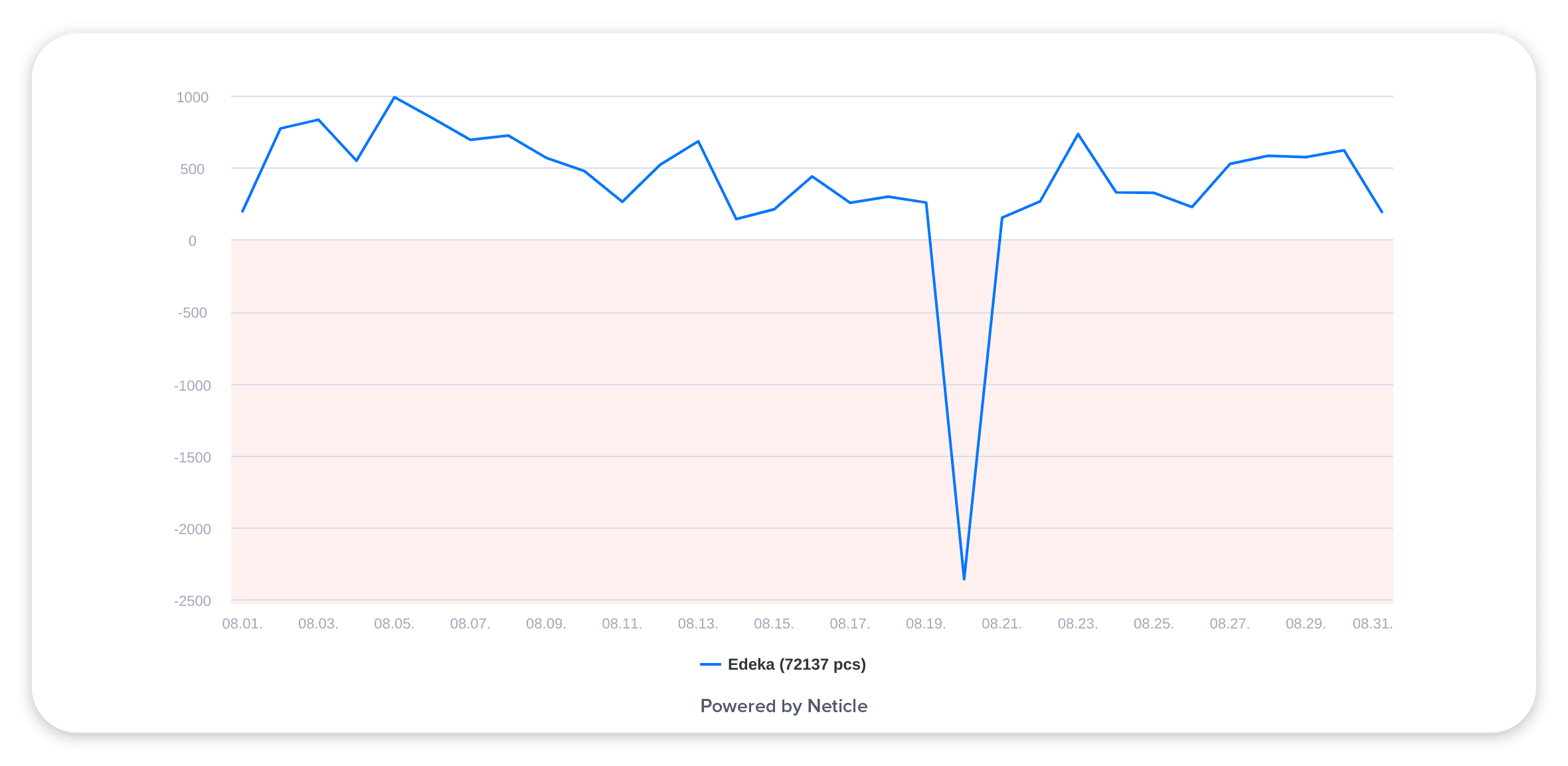 The online reputation of Edeka plummeted when they sent the AfD bottles back
The online reputation of Edeka plummeted when they sent the AfD bottles back
Furthermore, the majority didn’t feel okay about True Fruits’ campaign either: the general opinion was that advertising political parties on food or drinks was a bad idea. In just two days, 93 articles were written about the scandal around the fruit juices. The outrage spread over to Twitter as well: the opinion that was retweeted the most was about boycotting Edeka in response to their anti-democratic actions. True Fruits also even publicly replied to Edeka in a Facebook post, giving way to further debate.
As the chart with the most engaging posts shows, Instagram was also a platform where the conversation continued, especially under posts of popular news sites.
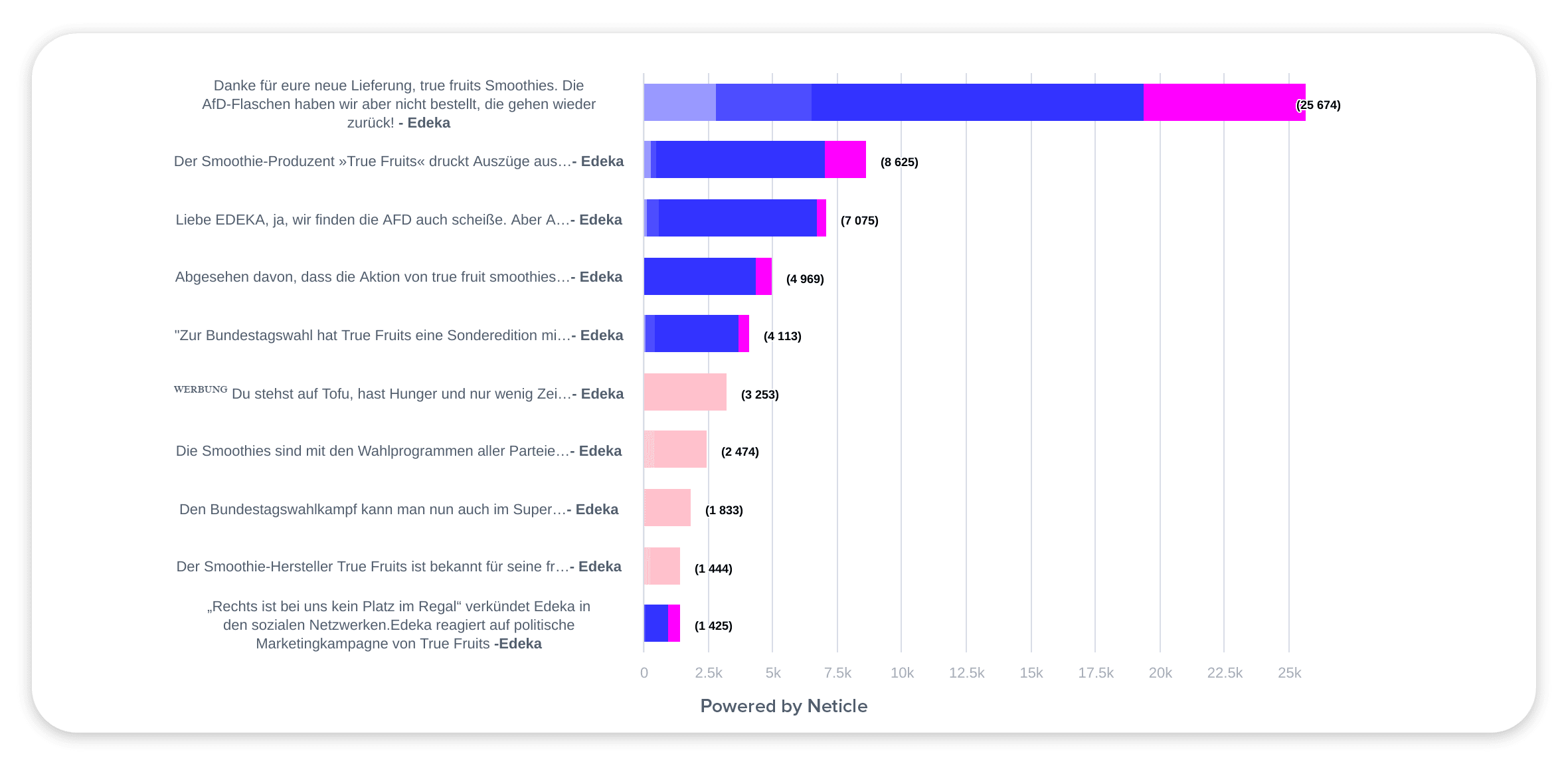 Posts with the highest interaction numbers during the scandal – Instagrammers also joined in
Posts with the highest interaction numbers during the scandal – Instagrammers also joined in
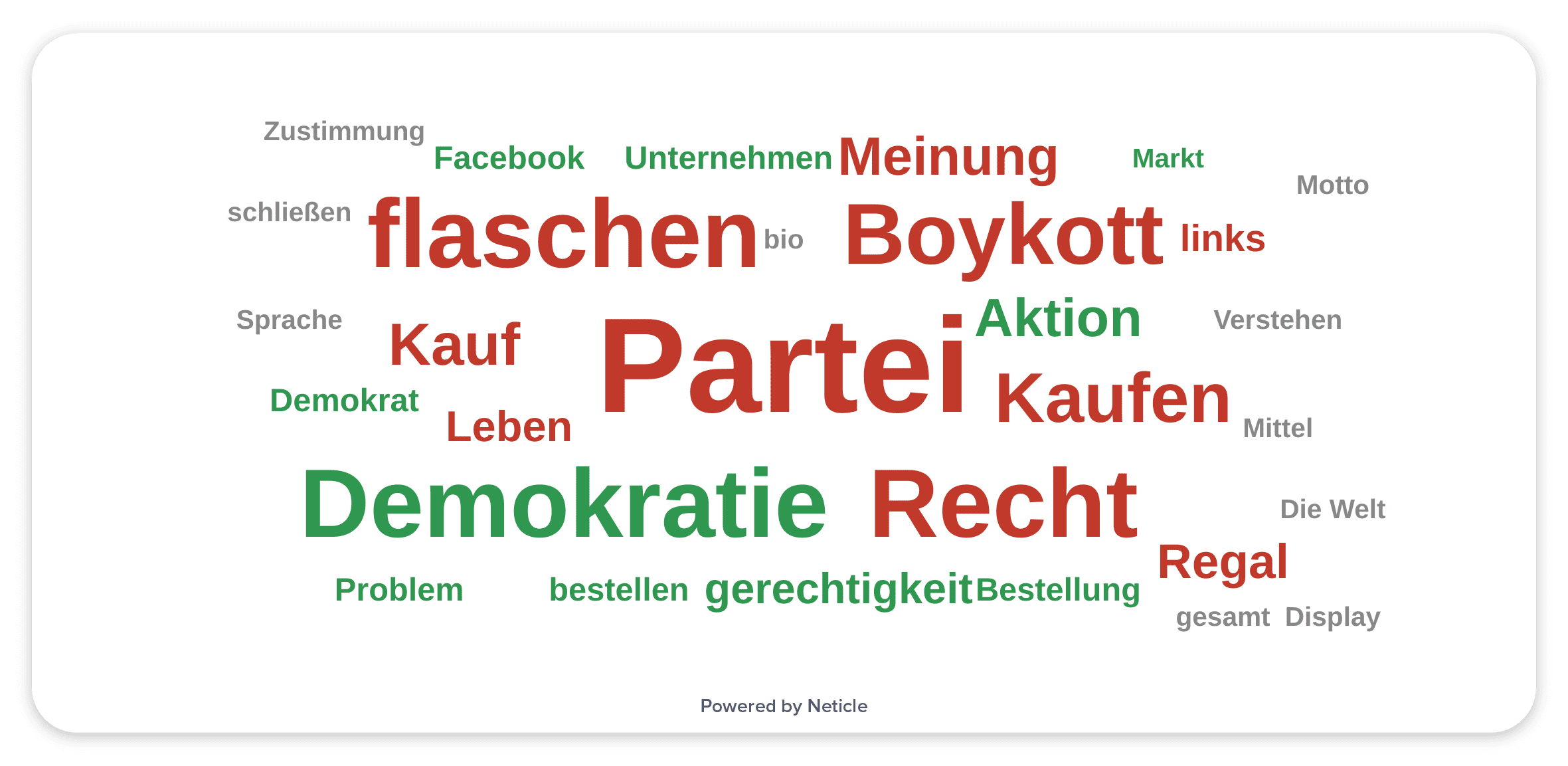 The online conversation revolved around these topics
The online conversation revolved around these topics
Social media posts and articles mentioning Edeka reached between 4 and 7 million users daily during the time when this was a hot topic – more than double of the usual daily amount!
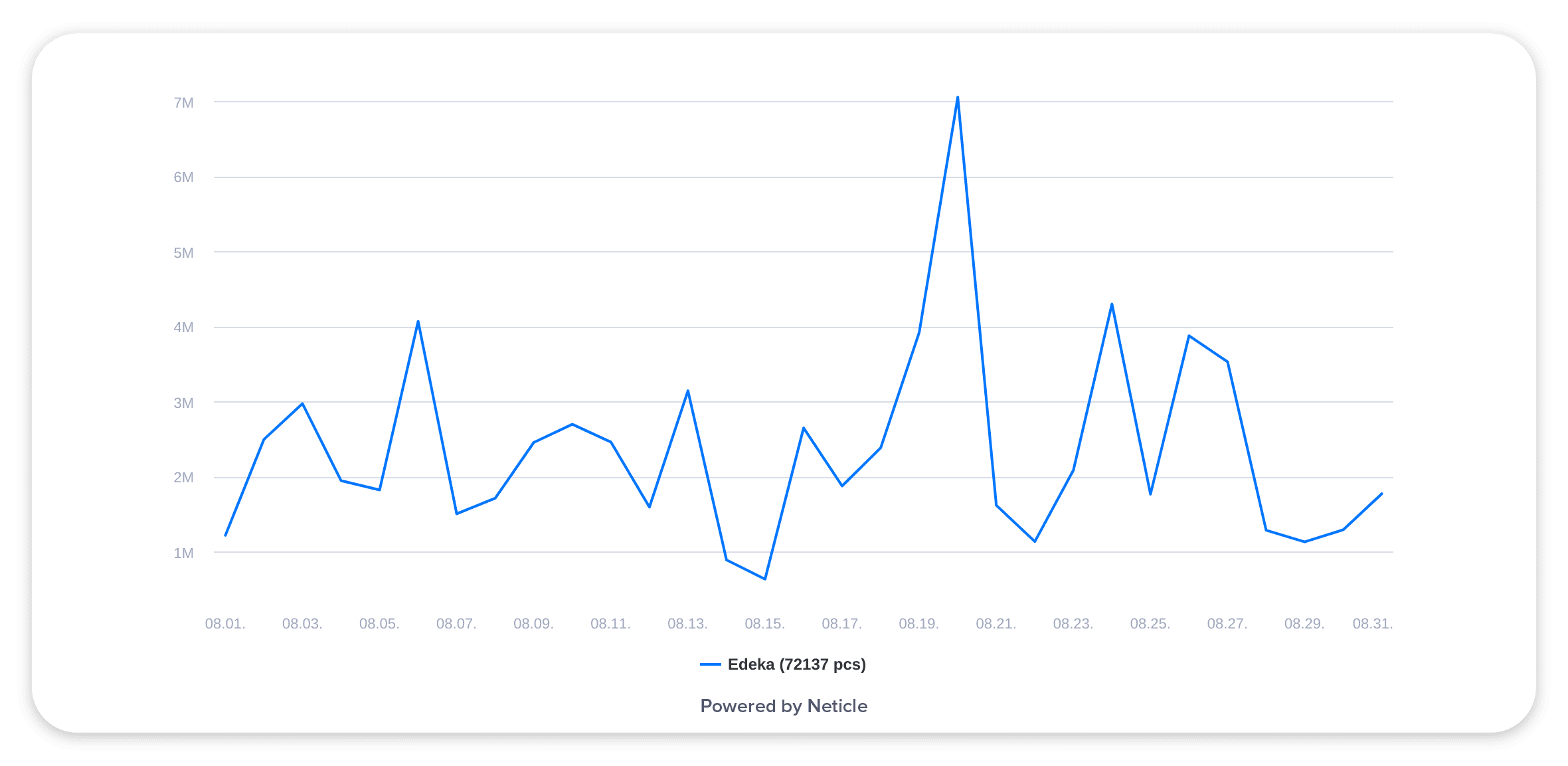 Potentially, more than 7 million people heard about Edeka’s scandal with the smoothies on 20 August
Potentially, more than 7 million people heard about Edeka’s scandal with the smoothies on 20 August
Offering hemp products backfired
During the month of August, Lidl Deutschland was caught in a public dispute too: this one was about edible cannabis items. At the start of the month, they began stocking 21 new cannabis products, including several by Czech brand Euphoria Trade and Slovenian Mogota doo, as well as a few by Lidl’s own brands. At the beginning, all of these were said to only contain CBD, and practically no THC, which is the psychoactive ingredient in cannabis (and illegal in Germany). However, on inspection by the police and prosecutors, some products were found to have traces of THC above the tolerance threshold.
Lidl had no choice but to announce a major recall, referring to a potential health risk: six of the new products were taken off the shelves, including different kinds of hemp tea, a hemp oil, a protein bar, and cookies. Hemp producers were baffled by the decision, saying that THC levels in these products were way below the European limit, and they are now campaigning to have the regulation changed. Consumer opinions were divided: some accused Lidl of being the largest Cannabis dealer of the country, but many were also disappointed as they had been looking forward to purchasing the new products.
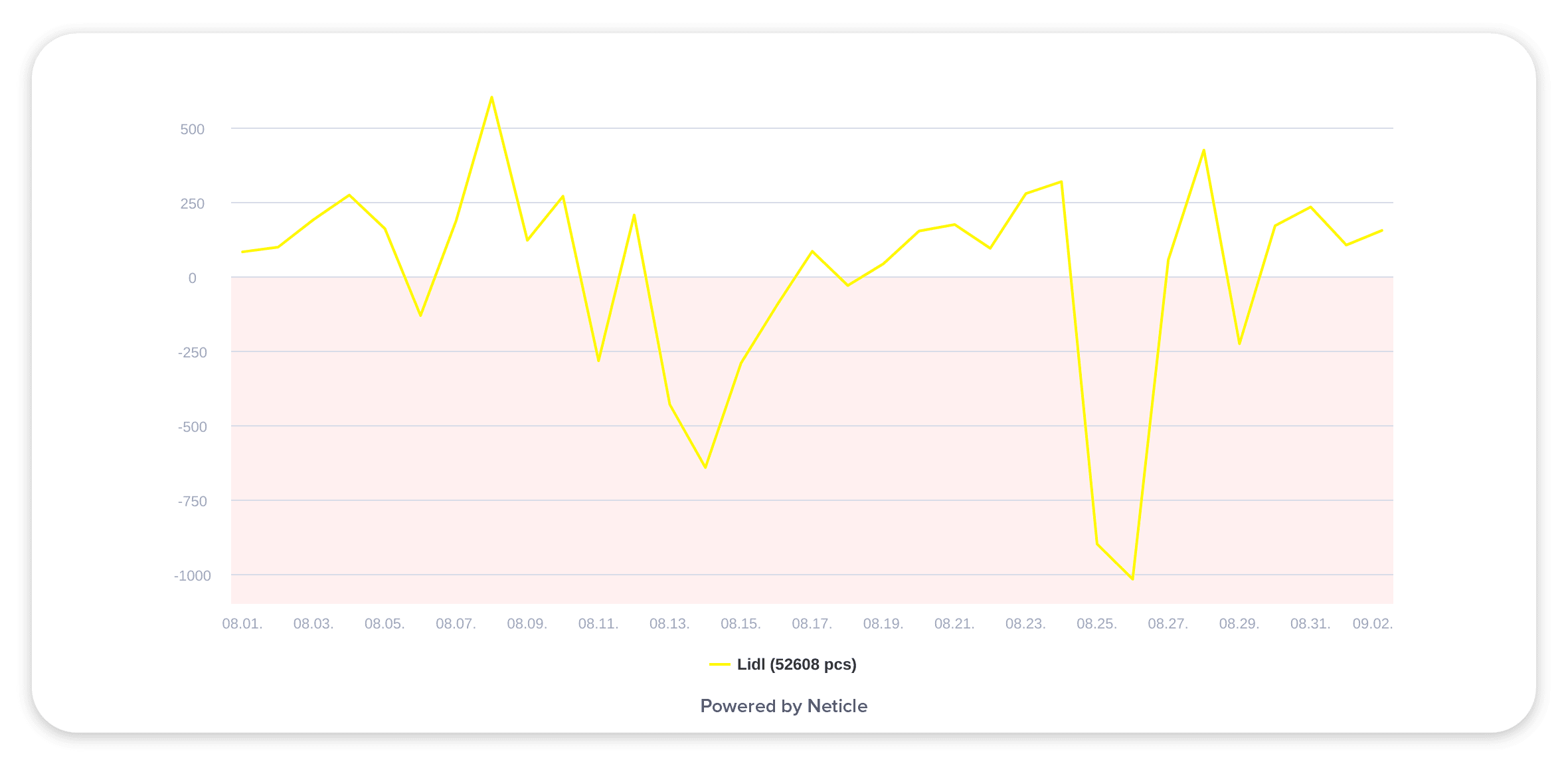 Lidl’s cannabis range backfired on the store
Lidl’s cannabis range backfired on the store
There were two significant falls in Lidl’s online reputation during August. (We measured this with our own, highly accurate Web Opinion Index at Neticle - each mention goes through sentiment analysis and is applied a score. Then those scores are aggregated and you get a daily/monthly etc. result). The first one happened when the police started investigating at the middle of the month, then the second one followed when the results came out and the recall was announced.
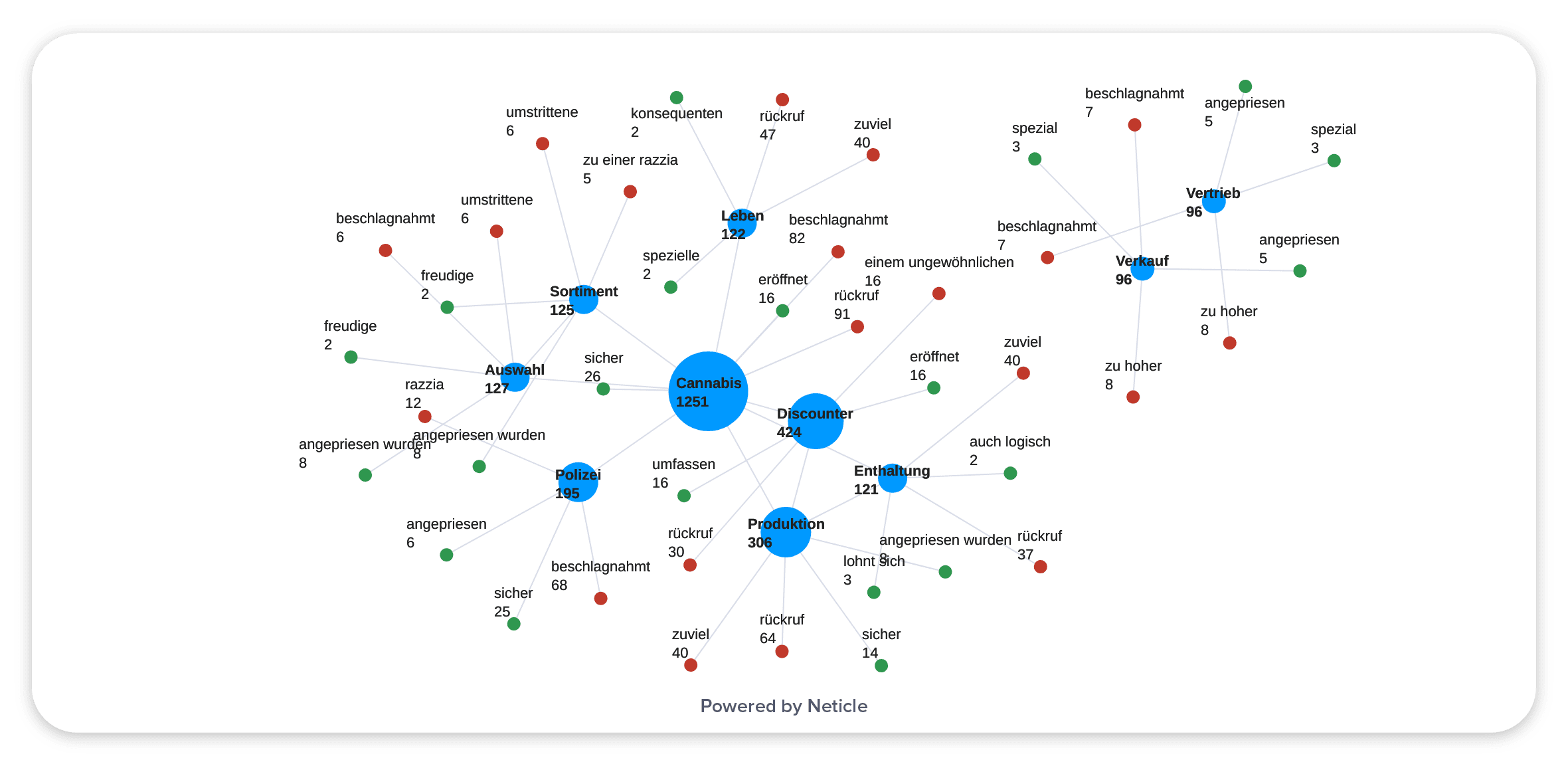 These were the key topics and their attributes in the conversation about Cannabis products
These were the key topics and their attributes in the conversation about Cannabis products
Along the thousands of social media comments, almost 400 articles talked about Lidl’s cannabis product line during August. The online content about Lidl during the mention peaks potentially reached 5-6 million people a day.
Imported, cheap eggs – not cool in Austria!
Between the 8th and 12th of July this year, the Web Opinion Index of BILLA and Penny Markt, brands belonging to the giant REWE Group in Austria, fell quite significantly. The reason behind it was the leaked information that Penny was selling cheap eggs imported from Germany, breaking the local agreement that has been in place for years. The Austrian standard doesn’t allow eggs from cage farming anymore, and the local, animal-friendly poultry industry strives to supply everyone in the country with fresh eggs, having the shortest transport routes possible. The imported German eggs all came from chicken in cages, and were also reported to have been packaged in the Netherlands.
The cheap eggs at Penny Markt had an effect on REWE’s and BILLA’s reputation as well, as these names were also often mentioned together – but Penny had the worst reputation fall.
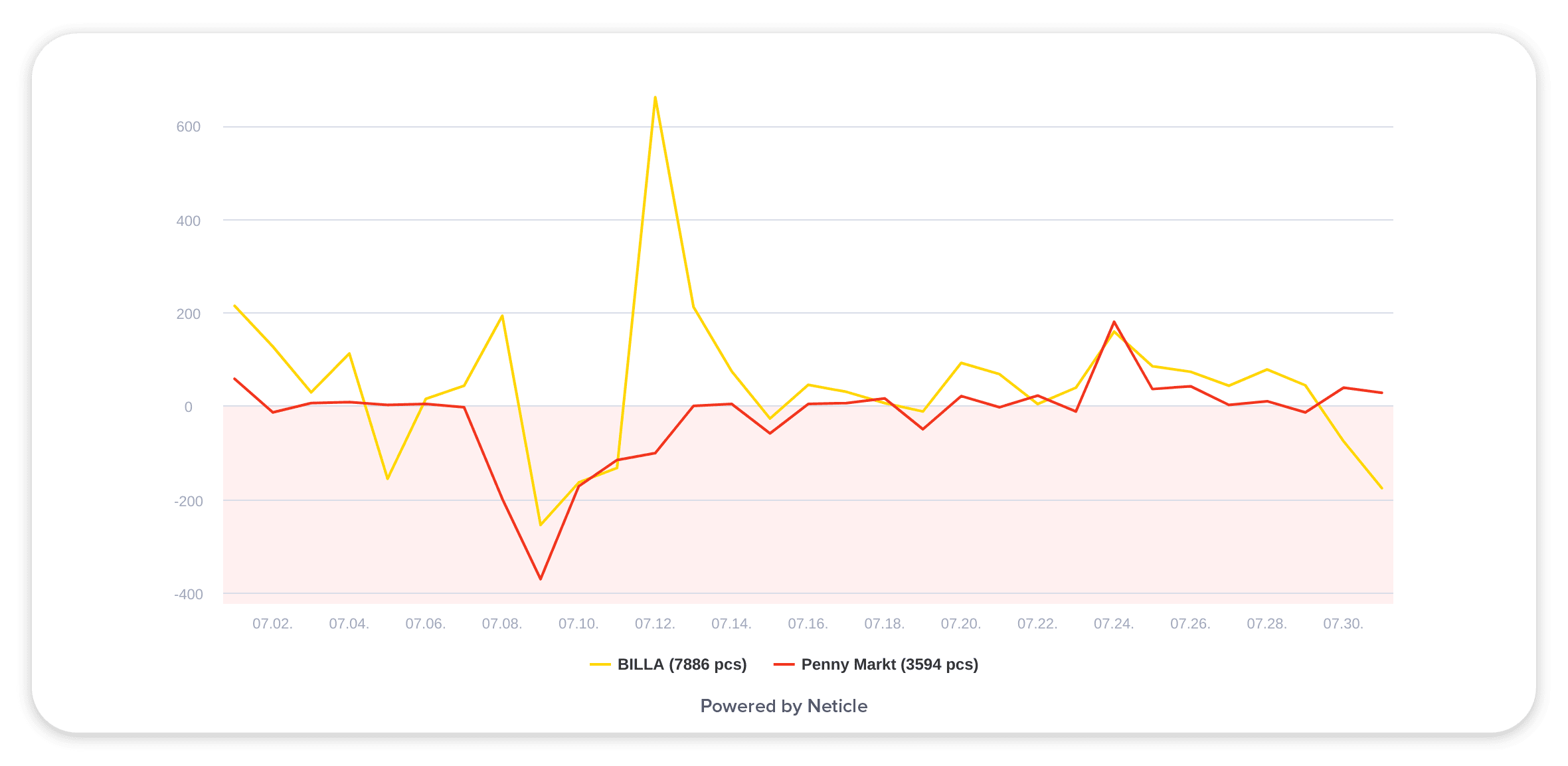 Penny Markt’s reputation stayed in the negative zone for most of July
Penny Markt’s reputation stayed in the negative zone for most of July
During the month of July, the issue was mentioned close to 800 times on the Austrian web – out of those, 66 mentions were articles. The majority of the discussion happened on Facebook, but there were also several tweets and blogposts about it. The post that had the strongest response was this one by oekoreich (a sustainability foundation), urging to boycott the imported eggs. Other posts, like the one by Bauernbrud, showed evidence of the broken agreement.
The tagcloud clearly shows all the concerns of Austrian farmers and animal lovers: the actions of Penny were against basic animal protection (Tierschutz) principles, lacked responsibility (Verantwortung) and set a bad example (Beispiel). The cheap price (Preis) also harmed local, responsible farmers, unable to compete with it.
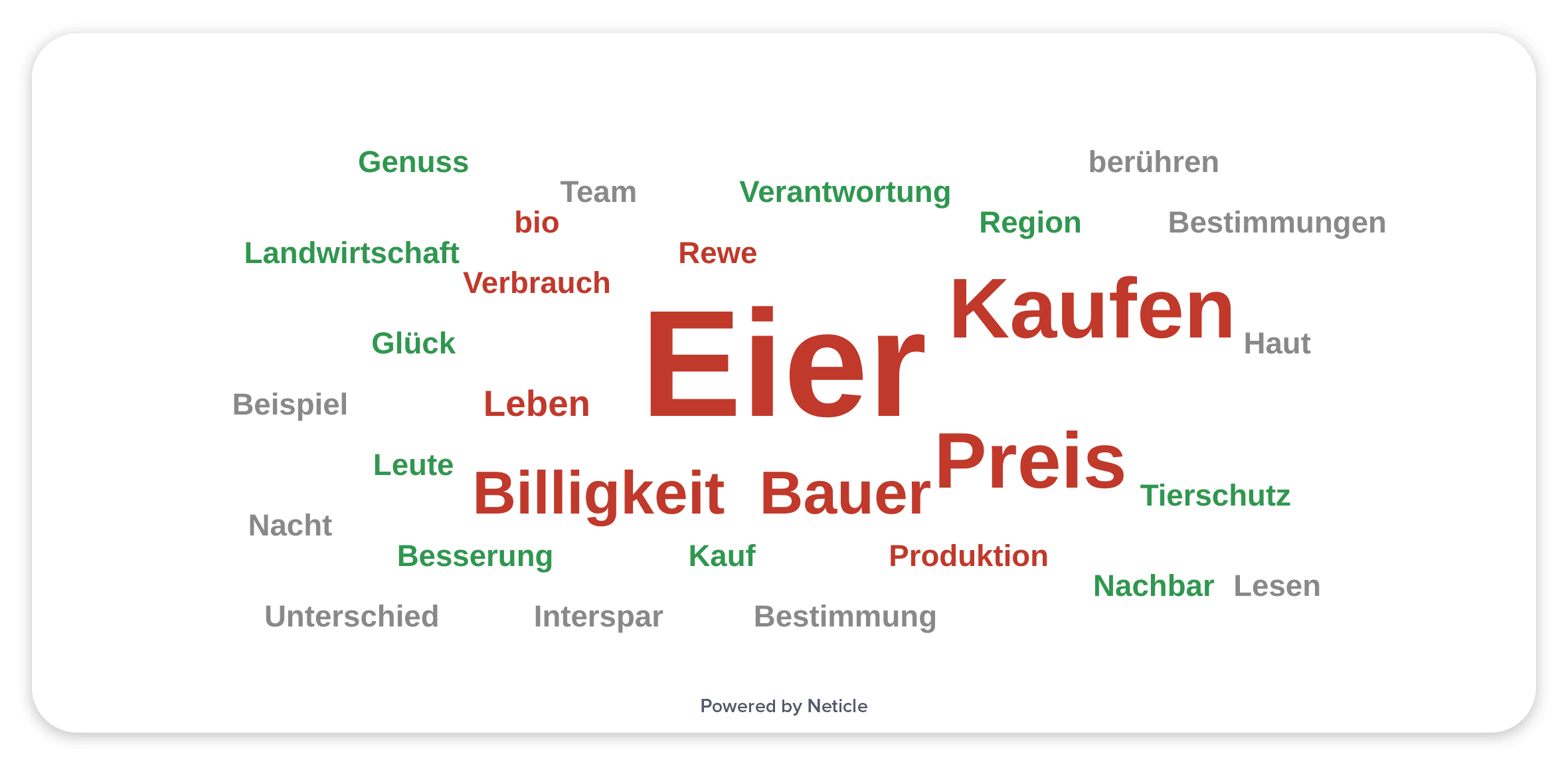
At the height of the online buzz, the issue potentially reached 830 thousand users in a day, which is basically one tenth of Austria’s population.
Strive to do more
With the help of a social listening tool, any of the brands mentioned in these three cases could have tried to turn the conversation in a more positive direction, or at least could have promised to learn from customer feedback and do better in the future. In today’s highly competitive markets, nobody’s position is safe forever, and it can handle only so many major blows on online platforms.
As we’ve seen, Neticle Media Intelligence can help you with a lot, but you can also directly ask your customers: Neticle’s own CX management tool, Zurvey.io, provides a great opportunity to get a 360º view, incorporating both solicited and unsolicited feedback. Plus, the two products work seamlessly together, so you can access all your insights in one place. Take a step today towards an impeccable online (and, consequently, offline) reputation and start your free trial!
Share:


